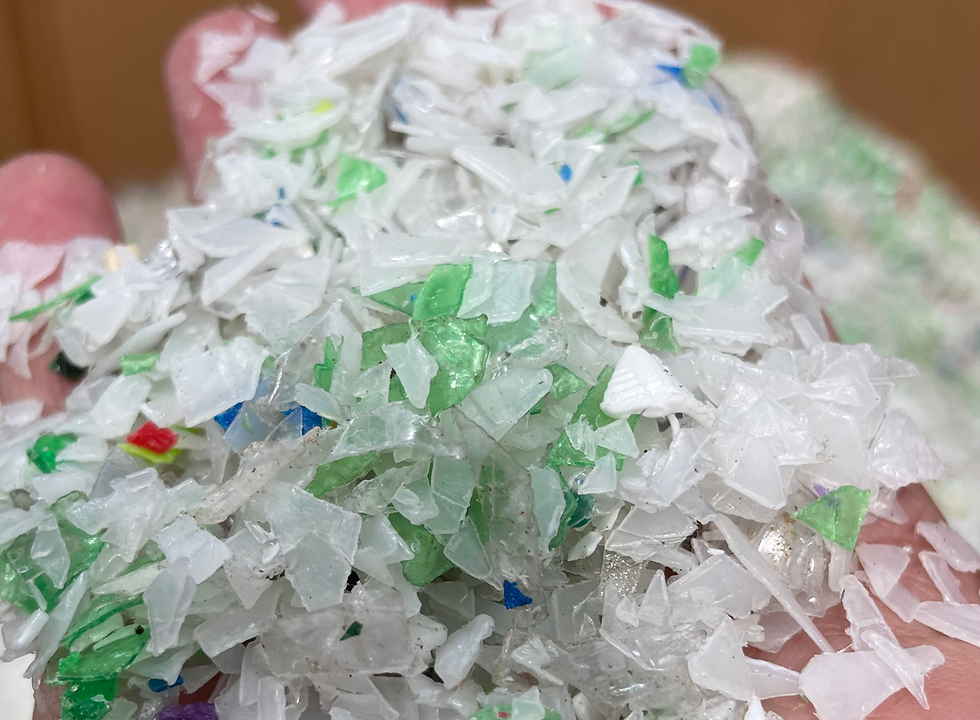Proposed California’s SB 54 -
Packaging Producer Responsibility Act
California has been on the forefront of the conversation surrounding plastic waste and coming alongside both environmental advocates and consumers pushing for more sustainable practices and products. One of California’s most significant steps is the enactment of Senate Bill 54. The legislation introduces an Extended Producer Responsibility (EPR) framework specifically for plastic packaging. This act was signed into law in June 2022.
Key Components of SB54:
Mandatory Recycling Targets:
By 2032, the Bill mandates that 65% of single use plastic packaging in California must be recycled.
By 2032, 100% of packaging in California is recyclable or compostable.
Producers are required to reduce the use of non-recyclable plastics, ensuring that packaging can be effectively processed in existing recycling systems.
Producer Responsibility Organizations (PROs)
Producers must join or establish a producer, responsibility organization (PRO) to manage their obligations under the EPR framework.
PROs will be responsible for developing and implementing plans to meet recycling targets, as well as for financing the collection, sorting, and recycling of plastic packaging.
Reduction in Plastic Production: The bill sets ambitious targets to reduce plastic packaging production by 25% by 2032. This reduction can be achieved through redesign, reuse, or the elimination of unnecessary packaging.
Increased Use of Recycled Content:
SB 54 requires producers to incorporate a minimum amount of recycle content in their plastic packaging. This measure aims to create a stronger market for recycled materials, driving demand and reducing reliance on virgin plastics.
What this means for Producers:
SB 54 represents a shift in how plastic waste is managed, and how we consider products end of life throughout their entire life cycle. This shift will likely lead to increased cost for producers as they invest in recycling infrastructure and adhere to stricter regulations.
The Future . . .
SB 54 also creates a great opportunity for innovation. Producers can gain a competitive edge by developing sustainable packaging solutions that exceed regulatory requirements. Companies can enhance their brand image and avoid costly fees associated with mandates if compliance is not met buying incorporating, more recycled, content, and reducing overall plastic use.
California has the potential to lead the way and developing more efficient and effective recycling processes that could serve as a model for other states and countries.
_HEIC.png)
Current updates on SB 54
-
Rulemaking Delay: CalRecycle withdrew the proposed regulations from the Office of Administrative Law (OAL) in January 2026 to revise language, particularly focusing on food and agricultural commodity packaging. A new comment period is expected.
-
Enforcement Actions: Despite regulatory shifts, the ban on expanded polystyrene (EPS) food service ware is in effect, with the Attorney General's office active in enforcing compliance as of December 2025.
-
Implementation Timeline: The overarching goals of the law—including a 25% reduction in plastic packaging by 2032—remain in place, with full program implementation anticipated to start in January 2027.
-
Producer Responsibilities: Producers are still required to work with the Circular Action Alliance (CAA), the approved Producer Responsibility Organization (PRO), to meet the upcoming requirements.
Timeline Review
of SB 54 in California:
Currently under review with proposed changes
-
June 30, 2022: Governor Newsom signs SB 54 in the law.
-
January 8, 2024: Circular Action Alliance (CAA) is selected as the inaugural Producer Responsibility Organization (PRO).
-
July 1, 2024: CalRecycle must publish a list of covered material categories.
-
August 2025: preliminary data reporting deadline.
-
Mid – 2026: PRO submit its plan for review.
-
January 1, 2027: CalRecycle approved plan and program begins.
-
March 1, 2027: fees begin for California Plastic Pollution Mitigation Fund.
-
July 1, 2027: First Administrative Fees to CalRecycle.
This timeline ensures that by 2032, 65% of plastic packaging in California will be recycled, with a 25% reduction in plastic use.
California’s SB 54 is a pioneering piece of legislation that aims to tackle the plastic waste crisis through in Extended Producer Responsibility framework. Holding producers accountable for the entire lifecycle of their plastic packaging, the bill seeks to reduce waste, increased recycling rates, and drive innovation in sustainable packaging.
